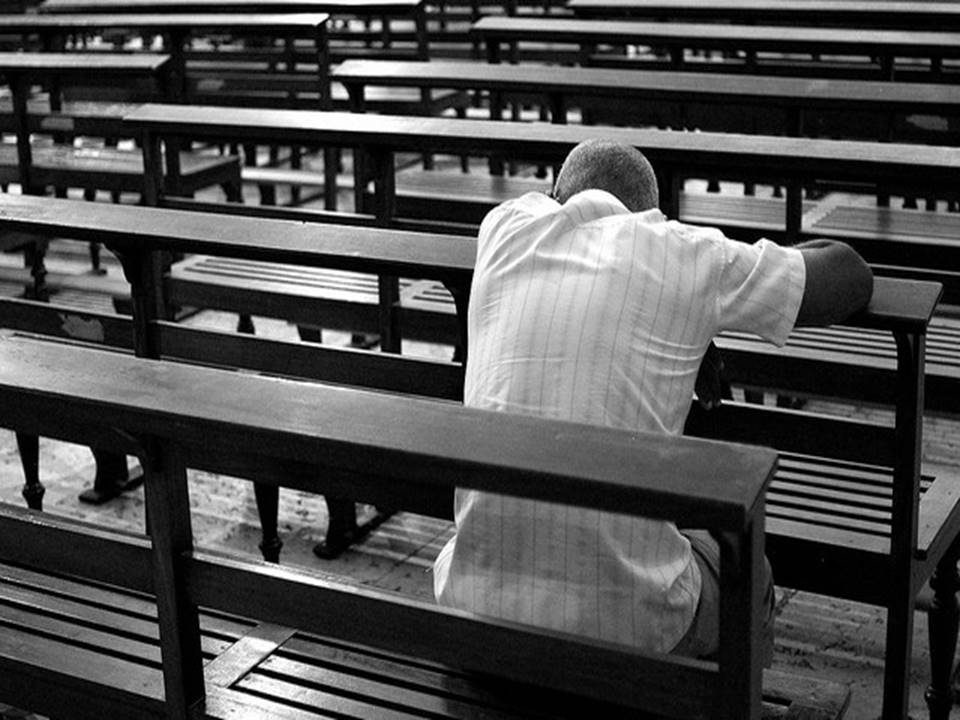
Remember the Sabbath Day

Samuel Smith
23 Jan'19
5
REMEMBER THE SABBATH DAY
20:9 Six days shalt thou labour, and do all thy work:
20:10 But the seventh day is the sabbath of the LORD thy God: in it thou shalt not do any work, thou, nor thy son, nor thy daughter, thy manservant, nor thy maidservant, nor thy cattle, nor thy stranger that is within thy gates:
20:11 For in six days the LORD made heaven and earth, the sea, and all that in them is, and rested the seventh day: wherefore the LORD blessed the sabbath day, and hallowed it."
(
This subject is one on which "divers and strange doctrines" are common at this end of the world. Statements are continually made about SATURDAY, both by the educated and the uneducated, which plain readers of the Bible find impossible to reconcile with the Word of God. If these statements came only from the ignorant and irreligious part of the world, we would have no reason to be surprised. But we may well wonder when we find educated and religious persons among our adversaries. It is a sad truth that in some quarters, the Seventh-day Sabbath is wounded by those who ought to be its best friends.
Give me your attention while I say a few plain words on the subject of THE SEVENTH-DAY SABBATH. I have no new argument to give. I can say nothing that has not been said, and said better too, a hundred times before. But AT A TIME LIKE THIS it becomes necessary that I cast in my mite into the treasury of truth. As a minister of Christ, I am bound to plead on behalf of the Seventh-day Sabbath. My advice to you is to contend earnestly for the Seventh-day Sabbath against all enemies, both within and without. It is worth the struggle. There are four points in connection with the Seventh-day Sabbath which require examination. They are:
1. The authority on which the Seventh-day Sabbath stands.
2. The purpose for which the Seventh-day Sabbath was appointed.
3. The ways in which the Seventh-day Sabbath is profaned.
4. The manner in which the Seventh-day Sabbath must be kept.
On each one of these I shall offer a few remarks:
In the first place, consider THE AUTHORITY ON WHICH THE SEVENTH-DAY SABBATH STANDS. It is of primary importance to have this point clearly settled in your mind. Here is the very rock on which many of the enemies of the Seventh-day Sabbath destroy themselves at this end of the world. They tell us that the day is "a mere Jewish ordinance," and that we do not to have to keep it holy than to offer sacrifice. They proclaim to the world that the observance of the Sabbath day rests upon nothing and cannot be proved by the Word of God.
Now, I believe that those who say such things are entirely mistaken. Famous and respectable as many of them are, I regard them in this matter as BEING COMPLETELY IN ERROR. I don't care about names with respect to this subject. It is not the assertion of a hundred highly idolized religious leaders, whether living or dead, that will make me believe black is white, or reject the evidence of plain texts of Scripture. I care little to be told what Benny Hinn, or Pastor Chris, or TD Jakes or Archbishop Duncan Williams or Dag Heward Mills have thought. The grand question is, "Are their thoughts worth credit? Are they right or wrong?
I am convinced that the observance of the Seventh-day Sabbath is part of THE ETERNAL LAW OF GOD. It is not a mere temporary Jewish ordinance. It is not a man-made institution by any religious organization. It is not an unauthorized imposition by any Church at this end of the world. It is one of the everlasting rules which God has revealed for the guidance of all mankind (
What does the Scripture say? This is the grand point above every other thing. What public opinion says, or popular religious leaders think, does not matter. We are not going to stand before the judgment seat of man on the Judgment Day. He that will judge us is the Lord Jesus our Saviour (
When I turn to THE HISTORY OF CREATION I read there that "God blessed the seventh day and sanctified it" (
When I turn to THE GIVING OF THE LAW OF GOD on Mount Sinai, I read there one whole commandment out of ten devoted to the Sabbath day, and this commandment is the longest, fullest, and most detailed of all (
When I turn to THE WRITINGS OF THE OLD TESTAMENT PROPHETS. I find them repeatedly speaking of the breach of the Sabbath side by side with the most abominable transgressions of The Moral Law (
When I turn to THE TEACHING OF OUR LORD JESUS CHRIST when He was upon this earth, I cannot discover that our Saviour ever let fall a word in discredit of any one of the Ten Commandments. On the contrary, I find Him declaring at the beginning of His ministry the following: "17 Think not that I am come to destroy the law, or the prophets: I am not come to destroy, but to fulfil. 18 For verily I say unto you, Till heaven and earth pass, one jot or one tittle shall in no wise pass from the law, till all be fulfilled" (
When I turn to THE WRITINGS OF THE APOSTLES, I find there plain speaking about the temporary nature of the ceremonial law and its sacrifices and ordinances. I see them called "carnal" (
When I turn to THE PRACTICE OF THE APOSTLES, when they were engaged in planting the Church of Christ, I find clear mention of their keeping one day of the week as a holy day (
When I turn, in the last place, to THE PAGES OF UNFULFILLED PROPHECY. I find there a plain prediction that in the days yet to come, when the knowledge of the Lord shall cover the earth, there shall still be a Seventh-day Sabbath. "From one Sabbath to another shall all flesh come to worship before Me, saith the Lord" (
Give serious attention to these arguments from Scripture. To my own mind, it is very plain that wherever and whenever God has had a Church in Bible times, God has also had a Sabbath day and that a Church without the Seventh-day Sabbath is not a Church based on the model of Scripture at this end of the world!
The second point that I propose to examine is THE PURPOSE FOR WHICH THE SEVENTH-DAY SABBATH WAS APPOINTED. It is necessary that I say something on this point. There is no part of the Seventh-day Sabbath that people do not say many ridiculous things about at this end of the world. Many say in this present day that we inflict upon them an injury when we call upon them to keep the Sabbath day holy. They talk as if the observance of the Seventh-day Sabbath is a heavy yoke, like the circumcision and the washings, and the purifications of the ceremonial law (
Once and for all, let us understand that The Seventh-day Sabbath is God’s merciful appointment for the common benefit of everyone. It was "MADE FOR MAN" (
Remember, in the first place that, THE SABBATH DAY IS GOOD FOR THE BODY OF EVERYONE. Each and every one of us needs a day of rest. On this point, at any rate, we are all agreed. Wonderfully and marvellously made as our bodies are (
One reason why our health so often fails us at this end of the world is due to our great difficulty in getting a day of rest. I am sure that if the body of each and every one of us could tell us what it most needs, it would cry loudly that, "Remember the Sabbath day."
Remember, in the second place that, THE SABBATH DAY IS GOOD FOR THE MIND OF EVERYONE. The mind of each and every one of us needs rest quite as much as the body. It cannot bear an uninterrupted use of its powers. It must have its periods of rest in order to recover its force. Without rest, it will either wear out prematurely, or fail suddenly.
When we rest regularly, one day in seven, we are able to do more work in an excellent manner than many who never rest at all. We become stronger. Our minds become clearer. Our powers of attention, application, and perseverance become far greater with the observance of the weekly Sabbath rest.
Many, with mighty brains, fail suddenly at this end of the world, and come to a sad end, and I note that in every such loss of mental power, the true cause is the neglect of the Fourth Commandment.
Remember, in the last place that, THE SABBATH DAY IS GOOD FOR THE SOUL OF EVERYONE. The soul of each and every one of us has its needs just as much as the mind and body. It is in the midst of this hurrying, bustling world, in which we are in constant danger of forgetting the needs of our souls. To have those needs properly attended to, we must have a special day set apart. We must have a regular time for examining the state of our souls. We must have a day to test and prove ourselves, whether we are prepared for eternal life or not. If we take away the Seventh-day Sabbath, our Christianity soon comes to nothing, and we soon move from "no Sabbath" to "no Creator" to no God (
I have no doubt that many will say that "CHRISTIANITY DOES NOT CONSIST IN KEEPING DAYS AND SEASONS" at this end of the world. I agree with them. I am quite aware that it needs something more than Sabbath day observance to save our souls. But I would like such persons to tell us plainly what kind of Christianity it is that teaches us to keep no one day of the week holy at all. It may be the Christianity that pleases our poor corrupt human nature, but I am sure that it is not the Christianity of THE BIBLE. It is not the Christianity which tells us that we "must be born again" (
I have no doubt that there are some good people who contend that "EVERY DAY OF THE WEEK OUGHT TO BE HOLY" to the Christian, and on this ground they ignore the special sanctification of the seventh (7th) day of the week at creation (
I propose, in the third place, to EXPOSE SOME OF THE WAYS IN WHICH THE SEVENTH-DAY SABBATH IS PROFANED.
This is a painful and a sad part of the subject. But it is one that we must not avoid. There are two kinds of Sabbath profanation which require our attention at this end of the world. One is that more PRIVATE kind of profanation which thousands of us are continually guilty, and which can only be checked by the awakening of our consciences. The other is more of a PUBLIC kind.
When I speak of PRIVATE PROFANATION OF THE SABBATH DAY, I mean our careless, thoughtless, worldly way of spending SATURDAY at this end of the world. How many of us do not make the Sabbath day a day for visiting our friends and partying? How many of us do not make the Sabbath day a day for an examination of our account books? How many of us do not make the Sabbath day a day for travelling and quiet transaction of our worldly businesses? How many of us do not make the Sabbath day a day for reading newspapers or novels? How many of us do not make the Sabbath day a day for talking about politics and engaging in idle gossip? How many of us do not make the Sabbath day a day, in short, for everything except the things of God? (
Now, all these sort of things are wrong, clearly wrong. Thousands of us, I firmly believe, never give profanation of the Sabbath a thought. We sin from ignorance and inconsideration. We do just as others do. We spend Saturday as our fathers and grandfathers did before us. But this does not change our case. It is impossible to say that to spend Saturday in the ways as I have described is to keep the day holy. It is a plain violation of the Fourth Commandment, and small and trifling as these violations of the Sabbath day may seem to us, they are exactly the sort of things that prevent us from communing with God, and getting any good from His day.
When I speak of PUBLIC PROFANATION OF THE SABBATH DAY, I mean those many open practices, which meet our eyes every Saturday at this end of the world. I am referring to the practice of keeping our shops and banks open, and buying and selling on Saturdays. I am referring especially to Saturday examinations, and excursions to places of public amusement.
On all these points I do not have the smallest doubt in my mind. These ways of spending the Sabbath day are all wrong, clearly wrong. So long as the Bible is the Bible, and the Fourth Commandment the Fourth Commandment (
These ways of spending Saturday are not works of necessity or works of mercy. There is no slight likeness between them, and any of the things which our Lord Jesus explains to be lawful on the Sabbath day. To heal a sick person, or pull an ox or an ass out of a pit, is one thing (
These ways of spending Saturday do no good to the souls of people at this end of the world. What soul was ever converted by partying, or clubbing on the Sabbath day at this end of the world? What heart was ever softened or brought to repentance by watching the World Cup or the Champions League on the Sabbath day at this end of the world? What sinner was ever led to Christ by writing an examination or travelling on the Sabbath day at this end of the world? What worldly man was ever turned to God by listening to reggae, hip pop, or opera music on the Sabbath day at this end of the world? NO, indeed! Experience teaches that we need something more than doing our own pleasure to teach us the way to heaven.
Last, but not least, these ways of spending Saturday inflict great injury on the souls of many people at this end of the world. Airlines and transport companies cannot operate on Saturdays without employing hundreds of people. Pilots, drivers, engineers, ticket-sellers, guards, conductors, porters, must all work on the Sabbath day, as long as we make Saturday a day for travelling and excursions. Shops, banks, and restaurants cannot open on Saturdays without servants, attendants and cleaners to take care of them, and wait upon those of us who visit them. And are not all these people important souls to save? Beyond any doubt, they are. Do they not all need a day of rest as much as anyone else? Beyond any doubt, they do. But Saturday is no Saturday to them, so long as we permit these public profanations of the Sabbath day. Their life becomes a long unbroken chain of work, work, continual work. It is time to do away with our idea that a pleasure-seeking Sabbath day is a mercy to anyone at this end of the world!
I write these things with sorrow. I know well to how many of us at this end of the world they apply. I have spent many Saturdays in my life, and I have seen with my own eyes how the Sabbath day is made by many of us a day of worldliness, a day of ungodliness, a day of pleasure (
There is one general conclusion to be drawn from the conduct of those of us who violate the Sabbath day in the ways I have described. We show plainly that we are "without God" at this end of the world. We are like the Israelites of old who said that, "When will the Sabbath be gone?" (
The last thing that I propose to do is to show THE MANNER IN WHICH THE SEVENTH-DAY SABBATH MUST BE KEPT.
This is a branch of the topic on which great differences of opinion exist. It is one on which even the friends of the Seventh-day Sabbath do not entirely agree. Many admit as strongly as I do for a Sabbath (
Once and for all, I must plainly say that I do not agree with people who tell me that they do not want a Jewish Sabbath, but a Christian one. Such people clearly do not know what they mean. If they object to a Pharisaic Sabbath (
What then is the will of God about the manner in which we must keep the Seventh-day Sabbath at this end of the world? There are TWO general rules laid down for our guidance in the Fourth Commandment (
One plain rule about the Seventh-day Sabbath is that It must be kept as a day of rest. Work of every kind ought to come to an end as far as possible, both of the body and of the mind. "Thou shalt not do any work, thou, nor thy son, nor thy daughter, thy manservant nor thy maidservant, nor thy cattle, nor thy stranger that is within thy gates" (
The other great rule about the Seventh-day Sabbath is that It must be kept holy. Our rest is not to be the rest of a mere animal, like that of the ox and the ass, which have neither mind nor soul. It is not to be a worldly, sensual rest, like that of the worshippers of the golden calf, who "sat down to eat and drink and rose up to play" (
My dear Brother or Sister in Christ, pay attention to these two general rules. By them all questions about the manner of keeping the Seventh-day Sabbath must be safely tested. Within the bounds of these rules every lawful and reasonable want of man is fully met, and that whatsoever transgresses these bounds is sin (
I am not a Pharisee. If you have been working hard for six weary days, do not suppose that I object if you take any lawful relaxation for your body on Saturday. I do not see any harm if you take a quiet walk on Saturday, provided always that it does not take your place of going to Church, and is really quiet, and like that of Isaac (
I am not an enthusiast. Do not misunderstand what I mean when I ask you to keep the Sabbath day holy. I am not telling you that you ought to pray all day, or read your Bible all day, or go to church all day, or meditate all day, without a break every Saturday. All I am saying is that your rest on Saturday SHOULD BE A HOLY REST. You ought to continually keep God in view. You ought to study God’s Word. You ought to attend Church. Your soul’s business ought to be specially considered; and I say that anything which prevents the Sabbath day from being kept holy in this way, ought as far as possible to be avoided!
I do not doubt that you and many other people think that I am setting the standard of keeping the Seventh-day Sabbath far too high. The thoughtless and worldly (
Last, but not least, I do not want any other standard of keeping the Sabbath day than that which a calm, sensible reflection on the world yet to come, will lead each and every one of us who is sober-minded. Are we really going to die one day and leave this world? Are we about to appear before God on the Judgment Day? Do we have any hope that we shall soon spend an endless eternity in God’s immediate presence? (
I wish to address a few parting words to you at this end of the world. If you are in the habit of breaking The Sabbath, whether you break it in private or in public, whether you break it alone or in a company, I have something to say to you. Give me your hearing.
Consider how you will answer for your present course of life on the Day of Judgment. Consider how utterly unfit you are to appear before God. You will not live always. You will one day die. You cannot escape the great assembly in the world to come. You will stand before the great White Throne, and give account of all your works (
Now, where is your preparedness for meeting the God of the Bible, and giving an account of your life to Him (
Go to Church next Sabbath, and hear the Gospel preached. Confess your past sins at the throne of grace, and ask pardon through that blood which "cleanses from all sin" (
Paul Fonsi












